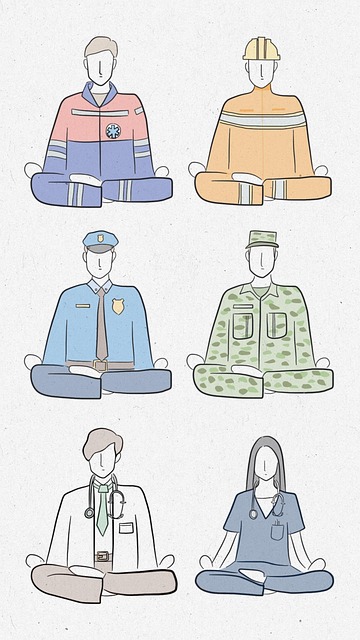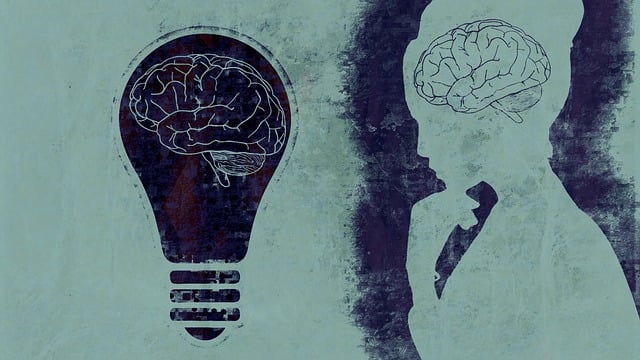The media's portrayal of mental illness in diverse Colorado Springs is crucial, as it impacts public perception and help-seeking behaviors. Current representations often oversimplify or perpetuate stereotypes about complex conditions. This text advocates for more authentic stories emphasizing therapy as a tool for managing life transitions, aligning with Mind Over Matter principles. Through collaboration between media creators and experts like Colorado Springs Major Life Transitions Therapy, empowering narratives can be fostered, reducing stigma, encouraging help-seeking, and revolutionizing societal understanding of mental health during major life changes.
In today’s media landscape, accurate representation of mental illness is crucial for fostering understanding and reducing stigma. However, current portrayals often fall short, perpetuating harmful stereotypes. This article explores the current state of mental illness representation in media and introduces innovative solutions, focusing on Colorado Springs Major Life Transitions Therapy as a holistic approach. We also provide strategies to enhance positive mental health depictions, aiming to revolutionize how media addresses this vital topic.
- Understanding Mental Illness Representation in Media: The Current State
- Colorado Springs Major Life Transitions Therapy: A Holistic Approach
- Strategies to Enhance Positive Mental Health Portrayals in Media
Understanding Mental Illness Representation in Media: The Current State

The media plays a significant role in shaping public understanding and perceptions of mental illness. Currently, representation in movies, TV shows, and news outlets often falls short of accuracy, perpetuating stereotypes or offering simplistic narratives that fail to capture the complexity of various mental health conditions. This is particularly problematic given the prevalence of mental illness globally, with one in four adults experiencing a mental health disorder in their lifetime. In Colorado Springs, a city known for its diverse landscape and community spirit, recognizing the importance of nuanced media representation is crucial.
The current state of mental illness portrayal in media can hinder individuals from seeking help, as it often fails to reflect the lived experiences of those affected. To challenge this, there’s a growing need for more authentic stories that incorporate the Mind Over Matter principles and emphasize the role of therapy in managing major life transitions. Community Outreach Program Implementation can play a vital part in ensuring accurate representation by educating media creators about mental health issues and promoting confidence-boosting narratives that empower both sufferers and supporters.
Colorado Springs Major Life Transitions Therapy: A Holistic Approach

In Colorado Springs, Major Life Transitions Therapy offers a holistic approach to addressing mental health challenges, focusing on every aspect of an individual’s well-being. This therapy type goes beyond traditional treatments by integrating various therapeutic techniques tailored to each client’s unique needs. For instance, it incorporates emotional healing processes, enabling individuals to confront and process their feelings, a crucial step in overcoming mental illness.
The program also emphasizes social skills training and empathy building strategies. By fostering these skills, clients can navigate relationships more effectively, enhance their support systems, and ultimately, improve their overall mental health. This comprehensive approach ensures that participants not only manage their symptoms but also develop the tools needed for long-term resilience and a higher quality of life.
Strategies to Enhance Positive Mental Health Portrayals in Media

Media plays a significant role in shaping societal perceptions, and accurate representation of mental health is crucial. To enhance positive mental health portrayals, media creators should prioritize authenticity and consult with experts like therapists from Colorado Springs Major Life Transitions Therapy. This ensures that stories are not only relatable but also provide insights into effective emotional regulation and anxiety relief strategies. By incorporating these elements, media can foster empathy building strategies, encouraging viewers to approach mental health issues with understanding and compassion.
Through nuanced storytelling, characters grappling with mental health challenges can be portrayed as complex individuals rather than stereotypes. This shift in representation encourages a more open dialogue about mental well-being, reducing stigma and promoting help-seeking behaviors. By embracing these changes, media has the potential to revolutionize how society understands and supports individuals navigating various life transitions, ultimately contributing to better mental health outcomes.
Mental illness representation in media has been a long-standing challenge, but with strategies like promoting holistic approaches like Colorado Springs Major Life Transitions Therapy, we can foster more accurate and positive portrayals. By adopting these changes, the media can play a crucial role in reducing stigma and enhancing mental health awareness, ultimately leading to a more supportive societal landscape for those dealing with mental health issues.














